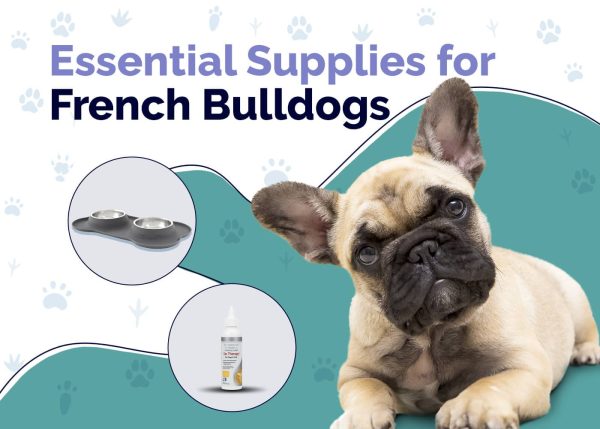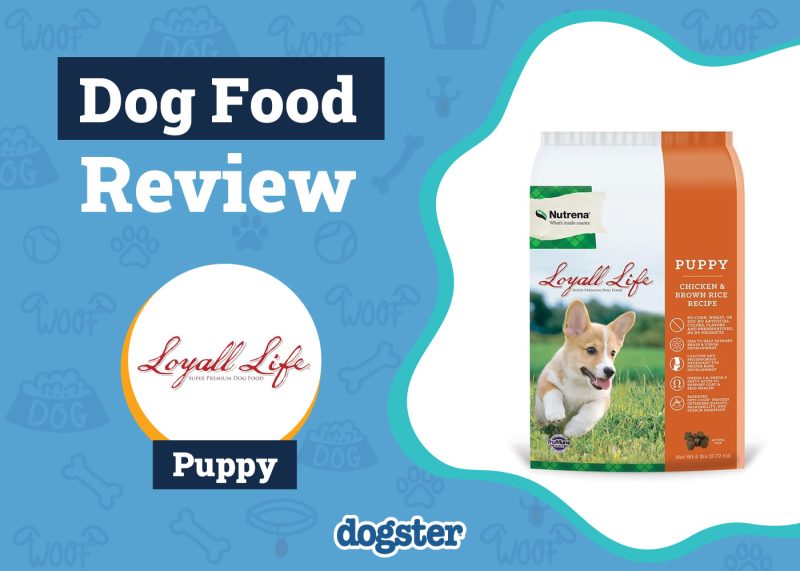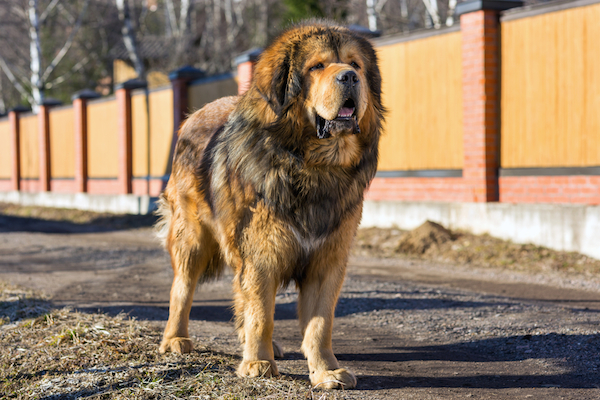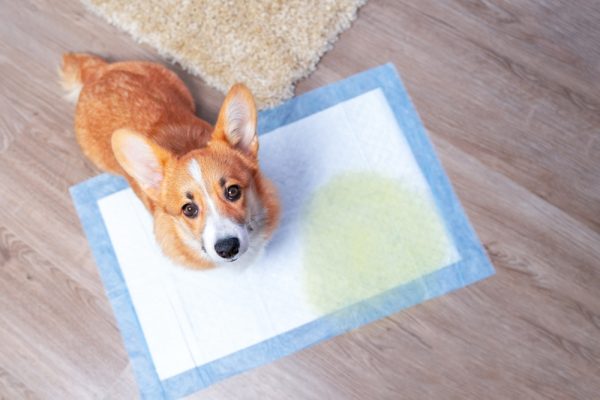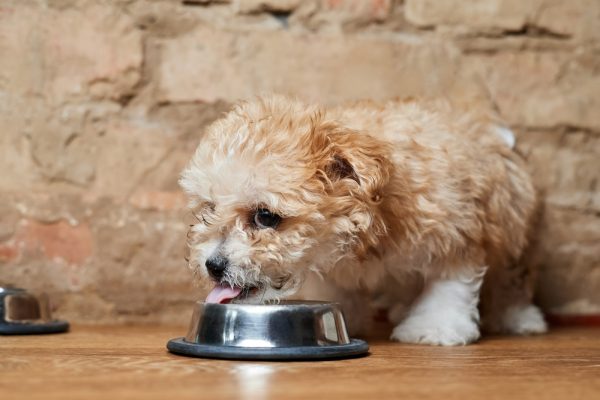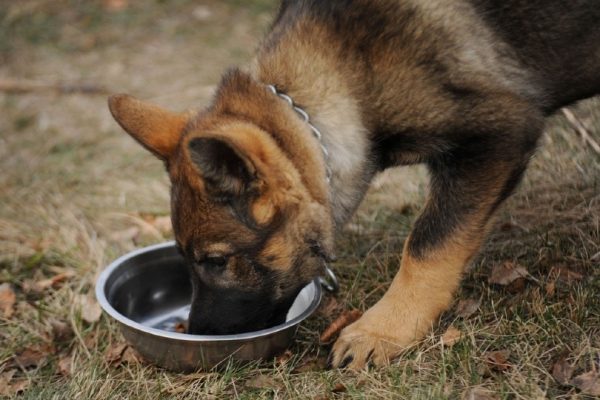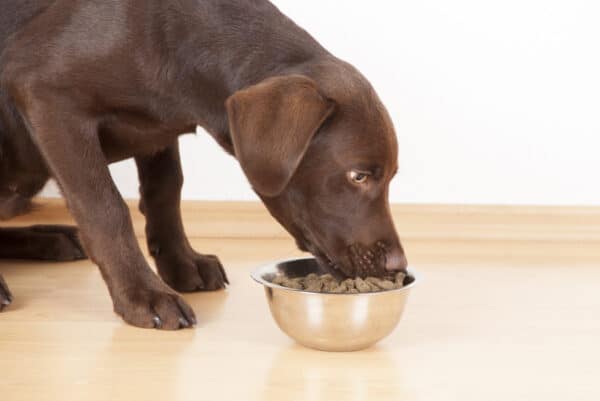In this article
View 3 More +We all love to indulge in a treat from time to time, and marshmallows are as indulgent as they come. Roasted over an open flame or mixed in with Rice Krispies, they are delicious and super-sugary snacks.
But is it okay to give your dog a marshmallow? They deserve such a tasty treat, don’t they?
While it may seem harmless to share a marshmallow with your dog, it’s actually not recommended. Dogs can’t handle sugary treats the way that we can, and some marshmallows contain xylitol, a sugar substitute that is toxic to canines.
Let’s get into why dogs shouldn’t eat marshmallows and what kinds of human treats are safer and healthier for them.

Why Can’t Dogs Eat Marshmallows?
It’s all in the ingredients. Store-bought marshmallows typically contain gelatin, corn syrup, water and sugar. Some often sugar-free marshmallows contain the natural sweetener xylitol, which is toxic to dogs. Never give your pet a marshmallow or anything else that contains xylitol.
If your marshmallows don’t contain xylitol, it likely won’t harm your dog if they eat one, but all that sugar is still not good for them in the long run.
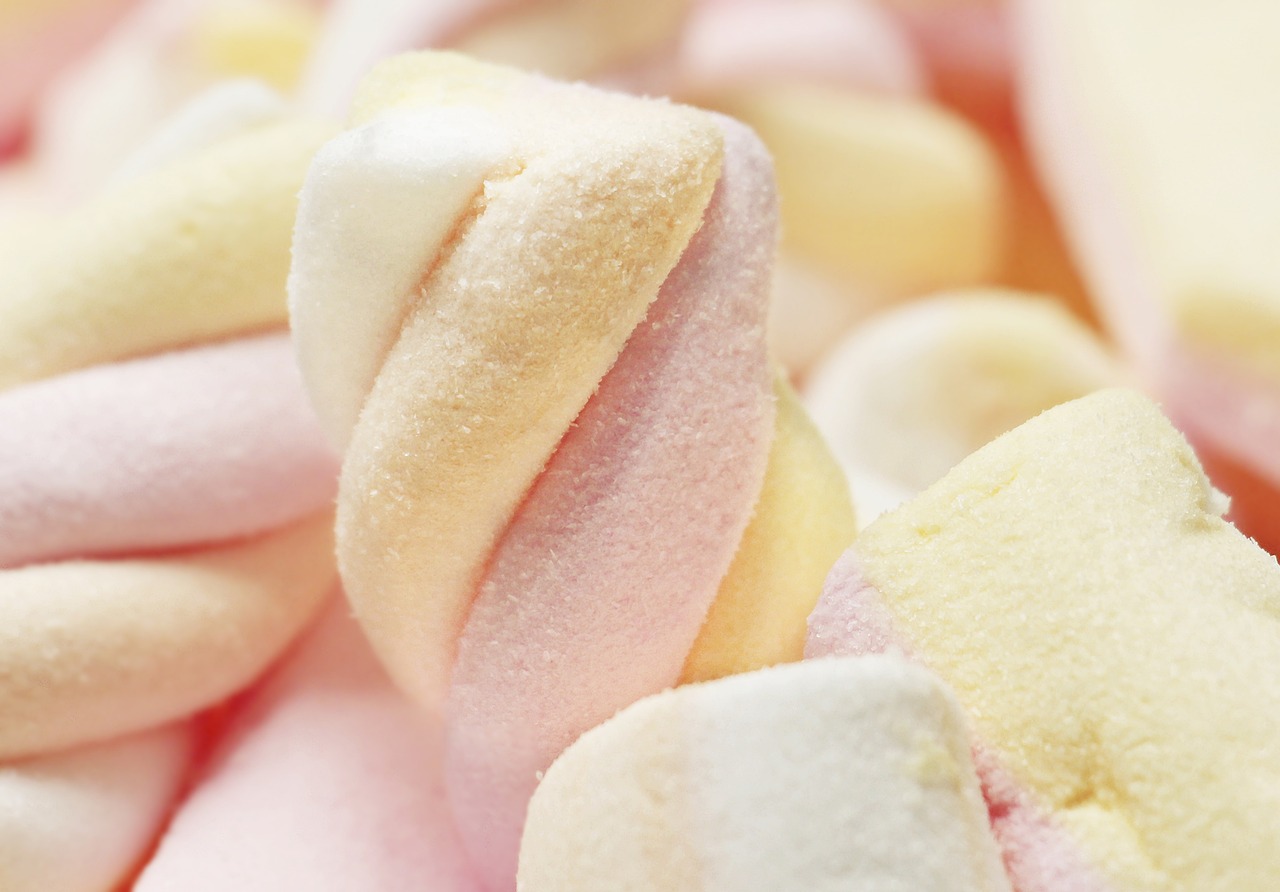
Dangers of Feeding Marshmallows to Dogs
Any food with a large amount of sugar should not be given to canines, and since a marshmallow mainly consists of sugar, it’s definitely not good for dogs.
If a dog eats too much sugar it can cause an upset stomach complete with vomiting and diarrhea. Eating lots of sugar over the long run adds a lot of extra calories to a dog’s diet which can contribute to weight gain and obesity. These in turn can contribute to things like diabetes and joint issues. Not to mention, high amounts of sugar can cause dental problems.
But don’t opt for sugar-free marshmallows instead, since there’s a chance that xylitol can be an ingredient. Why is xylitol so harmful to canines? It can trigger the rapid release of insulin that can quickly lead to a drop in blood sugar, leading to hypoglycemia. It can also lead to liver failure.
- Vomiting
- Lack of coordination
- Weakness
- Lethargy
- Tremors
- Seizures
- Collapse
- Coma
If your dog ate anything containing xylitol, even one mini marshmallow, contact a veterinarian immediately! You can also call the Pet Poison Helpline at (855) 764-7661 for further assistance.
Marshmallows can also be a choking risk, especially in small dogs

What Should You Do If Your Dog Ate Marshmallows?
If your dog has eaten one or two regular sugar marshmallows, they will likely be fine. However, you should double-check the ingredients on the bag to ensure that no xylitol is present.
If your dog consumed a significant number of marshmallows, it is best to contact a vet immediately. While a few marshmallows may only give your dog an upset stomach, you should speak with a vet if your pet has a health condition like diabetes. Additionally, you should never give marshmallows to small or young dogs.
If you need to speak with a vet but can't get to one, head over to PangoVet. It's our online service where you can talk to a vet online and get the personalized advice you need for your pet — all at an affordable price!


Frequently Asked Questions
What Other Foods Are Bad for Dogs?
Several foods are bad for canines. You already know about xylitol, but there are also:
- Avocados
- Alcohol
- Onions
- Garlic
- Anything with caffeine
- Grapes
- Raisins
- Dairy products
- Macadamia nuts
- Chocolate
- Bones
- Fat trimmings
- Raw eggs
- Raw meat
- Raw fish
- Salt
- Sugary food and drinks
- Yeast dough
- Human medicine
The list goes on, but these foods are the worst culprits and either are outright toxic or have the potential to make your dog sick.
If you suspect that your dog has eaten anything on this list, contact your vet or the closest vet emergency clinic for the next steps.
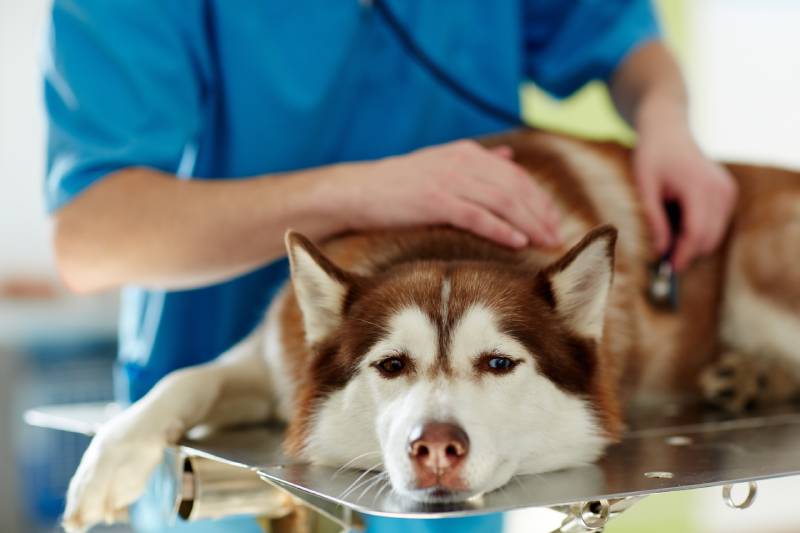
What Are Healthier Sweet Snacks for Dogs?
Bear in mind that treats and snacks should only make up 10% of your dog’s diet, even if they are considered healthy. Your best bet is to stick with vegetables and small amounts of fruit, which is both healthy and sweet. Not all vegetables and fruit are safe, however. You should stay away from grapes and citrus fruits are also not recommended. Be sure to remove all seeds and pits and serve fruits and vegetables plain without seasonings.
The following fruits are safe for dogs:
- Apples
- Bananas
- Blackberries
- Blueberries
- Cantaloupe
- Carrots
- Corn
- Green beans
- Honeydew
- Peas
- Pumpkin
- Raspberries
- Strawberries
- Watermelon
Are Other Treats With Marshmallows Safe for Dogs?
No. A few of the other things that are generally eaten along with marshmallows make them even worse. For example, Rice Krispie squares have butter in addition to the sugar. S’mores have chocolate, which is toxic to canines. Basically, it’s best to just keep your dog away from sweet treats for humans!

Conclusion
Feeding sugary treats to your dog is not a good idea, though if your dog eats just a small amount of something with sugar, like one or two marshmallows, they are unlikely to suffer any lasting harmful effects. However, if your dog consumes a large number of sugary treats, especially anything containing xylitol, it’s essential to contact your vet.
As a responsible dog owner, you should avoid bringing products into your home that contain xylitol to ensure your pet’s safety. Stick with sweet healthy things like blueberries and watermelon, or throw in a few veggies, such as carrots and green beans.
Featured Image Credit: Nella, Shutterstock


